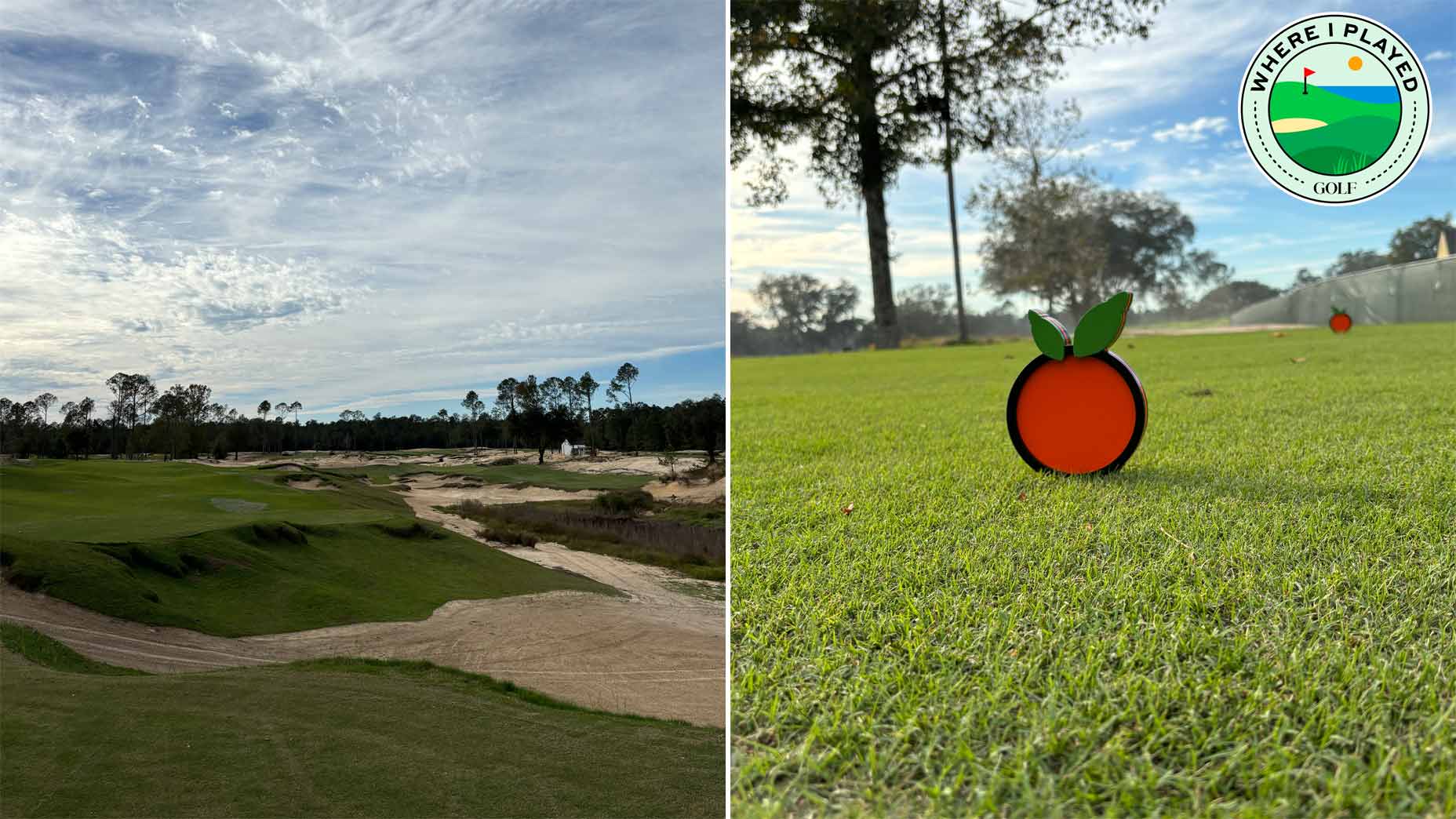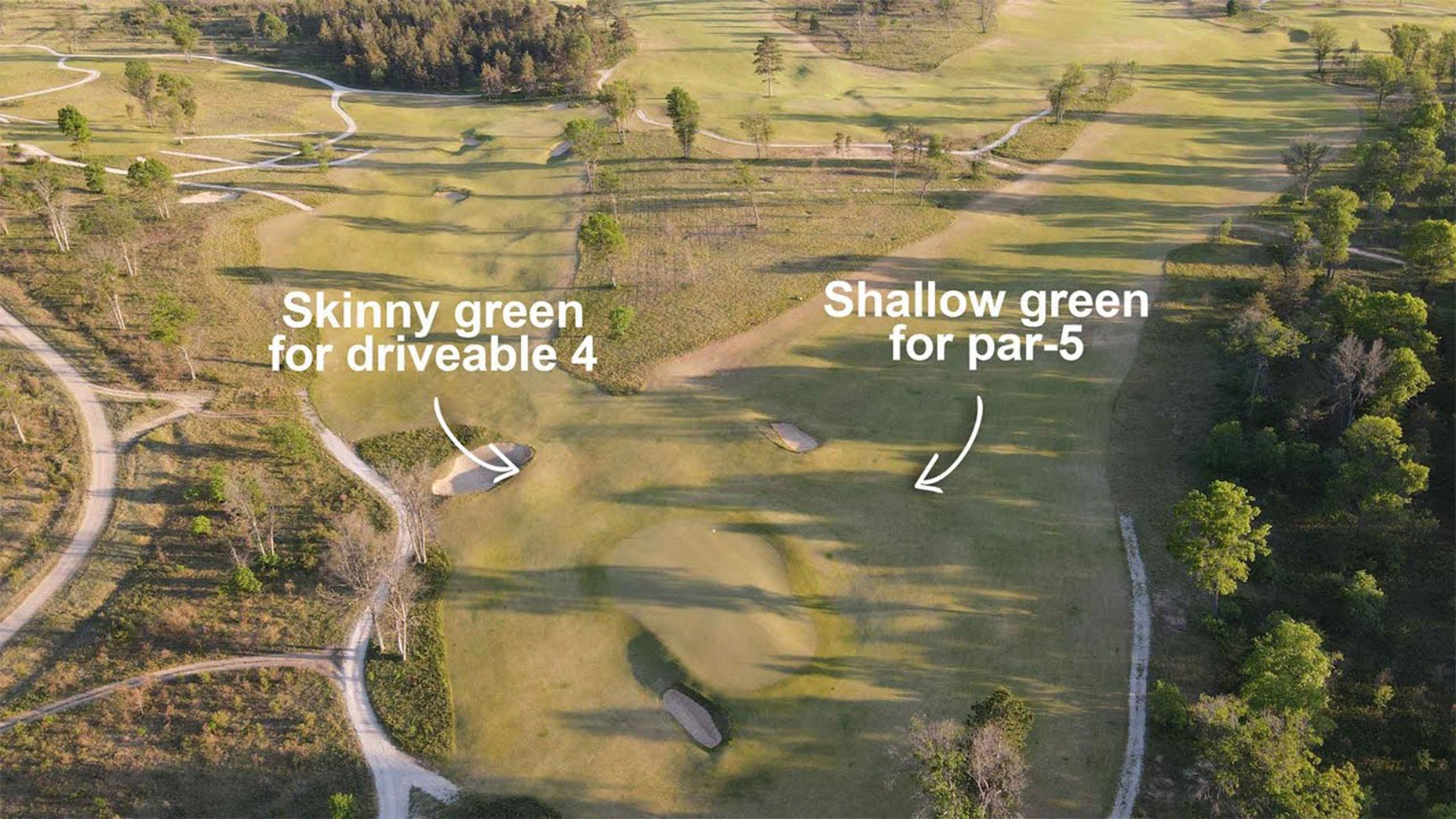Welcome to our “Where I Played” series, where a GOLF staffer runs through a recent day at a course you might play in your future. On this occasion, we’re teeing it up at Cabot Citrus Farms in Brooksville, Fla.
Typically an after-hours text from your boss can only mean bad news, but this time was different.
Any interest in a trip to Cabot’s new properties? Should be a good one.
It was the easiest “yes” I’ve uttered since taking this job. Checking out elite courses is a perk of the gig, but some trips are more special than others. This one had that ring.
I’d never been to a Cabot property before, but the lore of the brand’s first location, in Nova Scotia, looms large in the game. Two world-class courses, on gorgeous (and remote) coastal land in the former fishing village of Cape Breton. A place where the biggest decision every day is whether to play 18 or 36. A destination for true golf sickos.
In the 12 years since the first course at Cape Breton opened, Cabot has expanded its footprint, which now extends from Scotland to St. Lucia and into Western Canada, where Cabot Revelstoke in the works. Citrus Farms, Cabot’s first destination in the United States, is slated for a grand opening in October (with limited preview play in the meantime), with two 18-hole courses, a 10-hole executive course and an 11-hole short course
I got the chance to check it out last month, and here were a few of my favorite things about the property.
Dialed-in facilities
I’m not much one for a warmup. Some of that can be attributed to poor time management. But it’s also personal preference. I’m typically the one who shows up five minutes beforehand, rolls a few putts and walks to the 1st tee. Beating balls on the range for an hour has never been my vibe.
However, with a facility like the one at Citrus Farms, I might consider changing my ways. Each station is equipped with a launch monitor, so getting your numbers with every club is a breeze. No need for guesswork on your carry distances in a new environment. You can dial in everything before you tee off.
If you’re more of a short-game wizard, you’ll be pleased as well. Citrus Farms has a massive, undulating putting green (think St. Andrews’ Himalayas or Pinehurst’s Thistle Dhu) next to the range. It’s the perfect place to smooth out your stroke before hitting the course, or settle a bet with your buddies at the end of the day.
Kyle Franz masterpiece
I’ve had the privilege of playing a Kyle Franz-restored course (Pine Needles) alongside the man himself, but until visiting Citrus Farms, I’d never played one of his original designs. Walking off The Karoo after 18 holes, I think I have a new favorite contemporary course architect.
The course has a rugged feel with varied routing. Standing on most tees, you can easily envision a variety of pathways to the hole. Just don’t get too far off track — the sand dunes that line the generous fairways aren’t easy to escape.

With massive (and I mean massive) green complexes, plus lots of tight-mown areas around the putting surfaces, getting a putter in your hands on most holes is not difficult. It’s getting the ball in the hole that takes real skill. These greens are as bold as they come. Some seem like three greens in one, and the location of the pin dictates which third you’ll play to.
Karoo won’t beat you into submission. It’s wide, with ample leeway for errant shots, and not exceedingly long. Birdies can be had, but Franz’s design poses compelling questions, and the answers call for creativity. Walking off the course, you’re sure to yearn for another crack at it.
Laid-back atmosphere
Parts of Citrus Farms are still under construction, but it’s easy to imagine how the finished product will feel.
Quaint cottages back up to the practice range and putting greens, and food-and-beverage amenities are being built on the hilltop just beyond. Speakers will pump tunes throughout the day, and Adirondack chairs are scattered about to give your feet a rest when needed. And portions of the property are equipped with massive floodlights so you can scratch your late-night golf itch.
It’s easy to see the vision the Cabot team has set out to fulfill. I can’t wait to get back once everything is finished.
Mike Nuzzo ingenuity
After we played The Karoo, we hadn’t quite had our fill of golf for the day. Luckily, Citrus Farms has just the solution.
Tucked in the southwest corner of the property are two short courses, both bursting with personality. We didn’t get to play The Wedge, an 11-hole par-3 course that’s illuminated at night, but we did play The Squeeze, a 10-hole executive course designed by Mike Nuzzo.

Executive courses sometimes get a bad rap, but The Squeeze is as fun as they come. The holes range from 100 yards to 550 yards, and Nuzzo made the most out of every yard.
Want the chance to drive the green and make eagle? The Squeeze has you covered. A fan of pint-sized par 3s? It has that as well. Want a three-shot par 5? You’re in luck.
The Squeeze begs you to pull off the hero shot, and it gives you a chance to do that time and time again. If you’re aiming to hit a shot worth talking about at the 19th hole, it’s a must.










